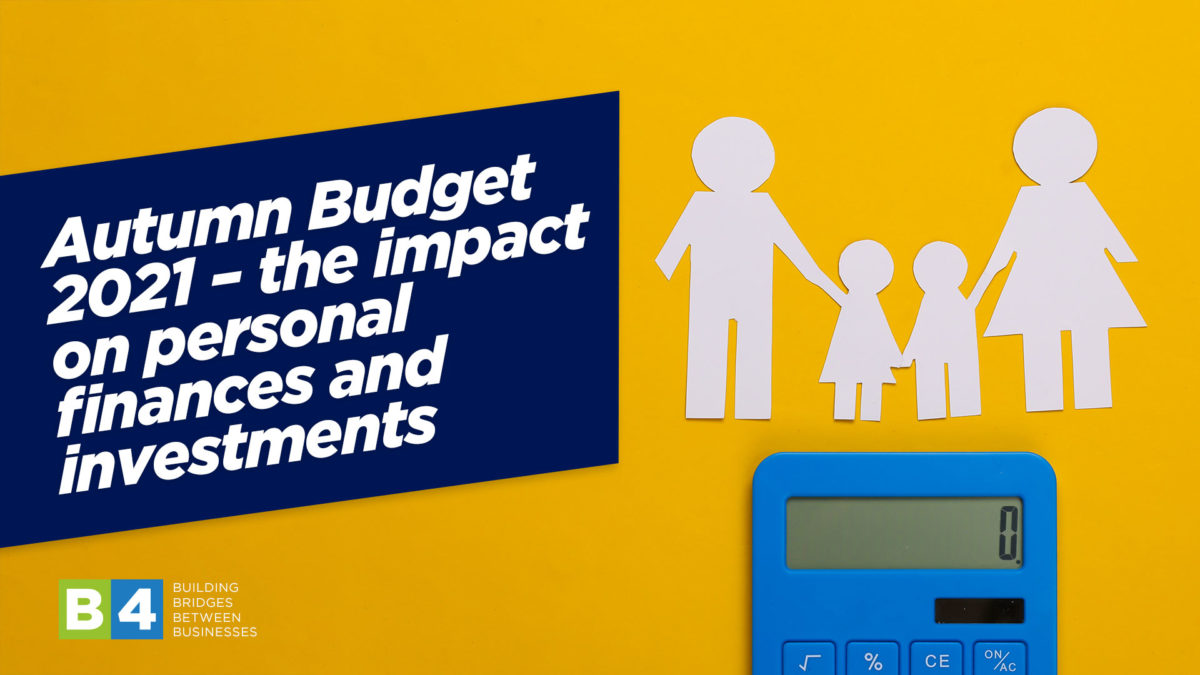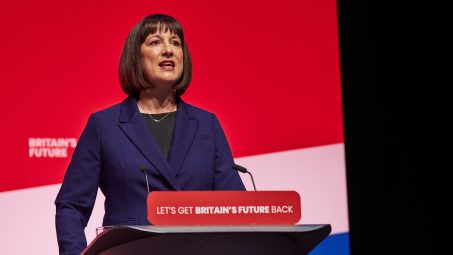
Autumn Budget 2021 – the impact on personal finances and investments
What did the Chancellor have in store for us in his red box?
Chancellor of the Exchequer Rishi Sunak unveiled his latest plans for the nation’s public finances today, focused on a post-pandemic economic rebuild. He urged that the UK is entering a “new age of optimism” as upgraded growth forecasts and less Covid ‘scarring’ than feared gave him more room for manoeuvre.
The Office of Budget Responsibility (OBR) lowered its estimate of the negative impact of the pandemic on GDP to 2% from a 3% hit. With this milder effect its projection of national debt also moderated. The burden is now expected to peak a bit lower at 85.7% in 2023/4. The OBR’s latest growth forecast was also positive, expecting the UK economy to grow by 6.5% in 2021, followed by 6% in 2022 and 2.1% in2023. It said the UK economy should return to its pre-pandemic size by the start of next year, rather than by mid-2022 as previously projected.
There was, however, acknowledgment of the rising challenge of inflation, with the Chancellor noting that CPI inflation is expected to average around 4% over the next year, which is likely to take a significant slice out of household budgets. Much of this he put down to global supply chain bottlenecks and a surge in demand for energy, but even so it seemed a little more cautious than the ‘transitory’ narrative emitting from the Bank of England.
To help combat a potential cost of living squeeze, there was support for households through a cut to the universal credit taper rate that has the effect of claimants losing some of their benefits as they earn more money. The rise in the National Living Wage to £9.50 an hour was widely reported in the lead up to Budget day and is also targeted at helping lower income individuals. In addition, there will be an end to the public sector pay freeze.
From a personal finance perspective, Mr Sunak’s third Budget contained little we didn’t already know or suspect. The big changes to taxes – the increase in tax on dividend income and a rise in National Insurance contributions from April next year to provide more money for social care – were announced in September.
The government had also previously confirmed a year’s suspension of the so-called ‘triple lock’ on state pensions. Normally, this guarantees payments increase annually by the higher of inflation, average wage growth or 2.5%, but a furlough-related anomaly saw the wage element dropped. The Budget earlier this year in March was also tax-focused, with a four-year freeze on income tax bands, essentially representing a tax hike as wages rise, and an announcement that corporation tax would rise significantly from 19% to 25% in 2023.
Although nothing really headline-grabbing emerged, a quiet Budget doesn’t mean an insignificant one. Better public finances might have represented an opportunity to renege on tax rises or freezes previously set out, or to cut VAT, especially with inflation increasingly bearing down on household finances. This may come in later years if economic recovery remains on track, but for now it was a case of prioritising public spending with significant rises across the major departments. However, for the usual areas subject to the pre-Budget rumour mill such as inheritance tax, pension tax relief and Capital Gains Tax it’s a case of ‘as you were’. There were also no changes to ISA or pension limits.
With the climate crisis escalating, and COP26, the international climate summit in Glasgow, just around the corner, it was widely anticipated that a portion of the Chancellor’s announcements would be focused on support for green infrastructure. However, there was relatively little on this during the speech, and with the government keen to prove its green credentials going into the event, a continued freeze on fuel duty and a cut to air passenger duty on regional routes raised a few eyebrows, albeit far-flung destinations will see higher costs.
In terms of market moves, the pound sold off very marginally into the Budget announcement but ended up retracing much of this. Gilts rallied during the day, particularly longer dated issues, with investors perhaps taking heart from the improved economic projections from the OBR and Mr Sunak’s determination to keep borrowing under control through new fiscal rules on public spending. He also underlined the importance of the Bank of England’s remit to achieve low and stable inflation and emphasised its strong record in doing so.
There was little reaction in share markets, although pub companies got a boost from a cut to duty on draught beer and cider. There was also good news for some smaller companies more broadly with a reduction in business rates of up to 50% for the retail, leisure and hospitality industries for a year.To discuss the themes of this article, please contact the team at Charles Stanley Oxford.
More in Finance & Insurance

Should you ever pay a hacker’s ransomware/ extortion request?
Paying a cyber extortionist, such as in a ransomware or blackmail situation, can lead to several potential problems, both immediate and long-term.

How B4 members could benefit from Salary Exchange before National Insurance...
Sarah Herd, Head of Workplace, Wren Sterling

UK Bond Market: What You Need to Know
The UK government bond market is once again making headlines as yields on longer-term debt surge to levels not seen in decades. This latest development has raised concerns among investors and policymakers, presenting significant challenges for the government’s fiscal plans.
From this author

B4 Finance Ecosystem: The specific opportunities and challenges that women encounter...
Charles Stanley are committed to fostering a proactive approach to investing and their goal is to empower women to make well-informed financial decisions and capitalise on potential growth opportunities. They also strive to support women in crafting their unique financial narratives, enhancing their knowledge, and understanding of investment strategies, and building a robust and influential female network.

Why entrepreneurs and business owners need an exit strategy
A recent report from Charles Stanley and Beauhurst, the UK’s landscape for business exits, revealed that 48% of entrepreneurs and business owners lack a succession plan or exit strategy.

Charles Stanley ...
Established in 1792, Charles Stanley is one of the UK’s leading wealth management firms, with a rich heritage of delivering high quality client service. Although we are more than 200 years old, we are focused on investing in our future, embracing technology and innovation, and adapting to changes in society to help our clients prosper. Operating from more than 20 branches across the UK we provide bespoke investment portfolios and tailored financial advice at every stage of your financial journey.

